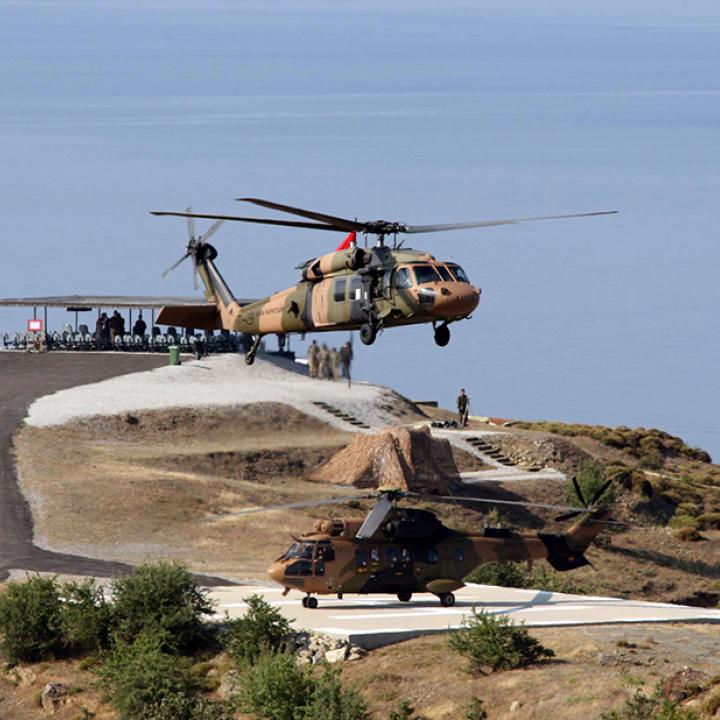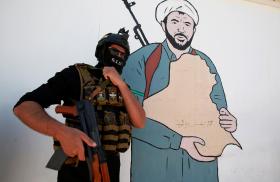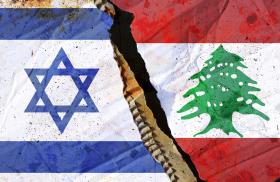
- Policy Analysis
- PolicyWatch 1925
Changed Prospects for Turkish Military Intervention in Syria

Several recent developments have put the possibility of military action in Syria on Turkey's agenda. On April 9, Syrian forces opened fire at a refugee camp on the Turkish side of the border, killing two Syrian refugees and wounding two Turks. The number of such refugees crossing into Turkey has increased sharply, reaching some 25,000. In response, Ankara is hinting at creating a buffer zone inside Syria to defend the civilian population and contain the crisis on its border. On April 10, Prime Minister Recep Tayyip Erdogan stated that although Turkey does not want to enter Syria, "if anybody were to force [Ankara] to do that, it would be the Syrian regime itself."
What are the most likely signs that Turkey is planning military action aimed at creating such a safe haven? Both domestic and regional political dynamics would no doubt shape Ankara's decisions in this regard, as would the military's level of preparedness. The following early indicators could help predict imminent Turkish military action:
-
Parliamentary approval. First and foremost, if the Turkish military is to be deployed beyond the border, the government must receive authorization from parliament. So far, the ruling Justice and Development Party (AKP) has not approached the legislature with such a request. Should it decide to do so, its prospects for success are good: the AKP holds 327 of the parliament's 550 seats, and a motion to approve military deployment requires only 276 votes.
-
Russian neutrality. Turkey is more likely to consider intervention if Russia, which has blocked international action against Damascus, were to drop its objections. Russia is the only neighbor with an economy and military larger than Turkey's. Ankara appears uninterested in confronting its most powerful neighbor, with which it has deep trade and energy ties -- for example, Turkey imports over 50 percent of its natural gas from Russia. At the same time, Moscow depends on Ankara as both a key trading partner and a strategic partner on energy security issues, including those related to proposed pipelines from the Caspian Basin to international energy markets. Given this interdependence, the two governments might be able to bridge their differences on Syria. Even if Ankara cannot convince Russia to formally approve Turkish action against the Assad regime, Russian neutrality could help clear a hurdle in Ankara's forward thinking on possible intervention.
-
Arab support. Ankara has cultivated good ties with the Arab Middle East over the past decade, building its own regional soft power in the process. For instance, Turkey receives regular invitations to Arab League summits. Ankara cherishes this newfound status and therefore takes Arab opinion into account when formulating foreign policy, including on Syria. Should the Arab League or Gulf Cooperation Council sanction military intervention -- Ankara has especially good ties with GCC members, including Saudi Arabia and Qatar -- this might help Turkey move forward against Damascus, potentially to the point of military action.
-
Closing of Aleppo consulate. Turkey closed its embassy in Damascus on March 22, but it has kept its consulate in Aleppo open for now. One reason a government chooses to evacuate its diplomatic personnel from another country is to safeguard them from becoming hostages in case of conflict between the two nations. In this regard, Turkey would likely close the Aleppo consulate and evacuate the rest of its diplomats before any military action in Syria.
-
Army drills along the border. The Turkish military has not conducted regular exercises along the border with Syria for over a decade. Accordingly, the army would need to carry out preparatory drills in this area if Ankara were planning an intervention. Such exercises could be seen as a likely final step ahead of potential Turkish action, though they could also be interpreted as deterrence. In 1998, when Ankara wanted to end Syria's support for the Kurdistan Workers Party (PKK), it carried out a massive military exercise along the border, successfully convincing Damascus to change its policy without actually invading.
- Mobilization of the 1st Army. The Turkish Land Forces, the backbone of the country's military, are divided into four armies. Southern Turkey, adjacent to the Syrian border, falls under the responsibility of the 2nd Army, headquartered in Malatya in east-central Turkey. Yet the country's premier fighting force, the 1st Army, is headquartered in Istanbul, with most of its units located over 1,000 miles from the Syrian border.
Currently, four 2nd Army brigades are positioned along that frontier: the 39th Mechanized Infantry Brigade based in Iskenderun, the 5th Armored Brigade based in Gaziantep, the 20th Armored Brigade based in Sanliurfa, and the 70th Mechanized Infantry Brigade based in Mardin. In addition, several support units are stationed up to two days' distance from the border: the 5th Armored Brigade and Artillery Regiment based in Kahramanmaras, the Combat Engineer Regiments based in Malatya, the 16th Mechanized Infantry Brigade based in Diyarbakir, and the 172nd Mechanized Infantry Brigade in Silopi.
The 2nd Army has spent much of its energy fighting the PKK in southeastern Turkey and northern Iraq over the past few decades. Indeed, Turkey's military planning has played down the possibility of a serious threat from Syria since Ankara convinced Damascus to change its PKK policy in 1998. Thus, until the Syrian uprising began in 2011, Ankara had taken a rather benign view of its neighbor, as shown by actions such as removing mines from the border area and deploying premier fighting units elsewhere.
In short, the Turkish military along the Syrian border is arguably less than war ready. Units in this area appear to be weaker than those in the rest of the country; for instance, they typically fail the war-preparedness drills run by the Turkish chief of staff every other year.
For its part, Syria has traditionally stationed a comparable number of troops near the border, namely, four brigades and three regiments. Of course, most of the Syrian military is tied down with fighting the uprising, so it is not clear how many of these units would be available to counter a Turkish incursion. Still, if Ankara is planning to intervene, it would be better served by boosting its military presence in the area both qualitatively and quantitatively to improve the chances of success. This would require strengthening the 2nd Army primarily with units from the premier 1st Army in northwestern Turkey, and perhaps also from the Aegean Army (often called the 4th Army) in western Turkey. Although the 3rd Army in the northeast is a relatively small force, some of its units could be mobilized toward Syria as well. Whatever is decided, the Turkish military would require approximately six weeks to mobilize such units, relocate them to the Syrian border, and make them war ready.
Soner Cagaptay is director of the Turkish Research Program at The Washington Institute.


